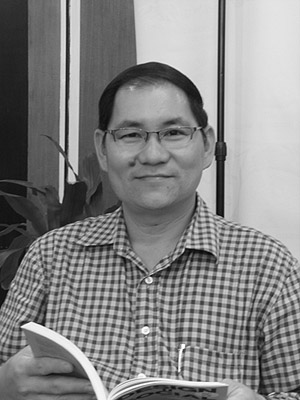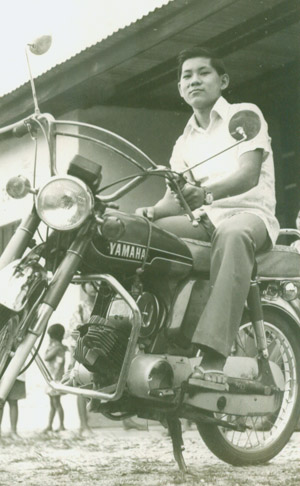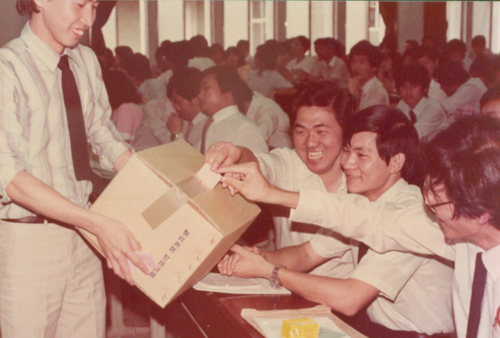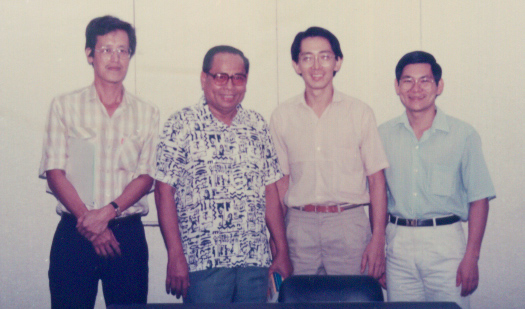
TANG Ah Chai is a public intellectual and political commentator in the Chinese Malaysian community. Over the past few decades, the former deputy director of the Centre for Malaysian Chinese Studies has been actively involved in research relating to Chinese Malaysian history. He has written and edited Mandarin books on Yap Ah Loy, the founder of Kuala Lumpur, and on Chinese Malaysian cultural heritage and historical figures. Besides that, Tang is part of the committee that helps to write and edit historical textbooks for Chinese independent schools.
Tang has also been active in the Kuala Lumpur and Selangor Chinese Assembly Hall (KLSCAH) Youth section since it was formed in 1985. “Except for the post of treasurer, I’ve been elected to all the posts before, from committee member to president,” quips Tang, who is now KLSCAH chief executive officer.
He speaks to The Nut Graph about growing up on an estate and his experience of Operasi Lalang, in an exclusive interview on 6 Aug 2010 in his Kuala Lumpur office. The interview was conducted in Mandarin and translated to English.
TNG: Where and when were you born?
Tang Ah Chai: I was born in 1961 in Slim River, Perak. My mother was a rubber tapper and my father a labourer at Bukit Basut estate. A few months after I was born, the entire family – I have five siblings, but at that time my youngest sister wasn’t born yet – moved to Ulu Tiram in Johor. It’s a town between Johor Baru (JB) and Kota Tinggi.
The Communist Party of Malaya was quite active in Slim River back then. They would ask people for food and other supplies. My parents didn’t feel safe, so they decided to move.
I left Ulu Tiram and moved to JB to study in Foon Yew High School in 1974. The rest of my siblings, except for my oldest sister who didn’t go to school, studied in a national school in JB. I was the only one who wanted to study in a Chinese independent school because of my interest in Chinese culture and history. After graduating from Foon Yew, I studied history in National Taiwan University (NTU).
When I started studying in Foon Yew, my father changed his job and was working at a sawmill in JB. So I lived with him and returned to Ulu Tiram on the weekends.
What was growing up in Ulu Tiram like? What are some of your favourite memories from that time?

It was an average estate life. At that time, there were no foreign workers in estates yet. Malay, Indian and Chinese [Malaysians], everyone lived, worked and played together. Our houses weren’t segregated according to race, it was all mixed up. My Tamil is broken now, but during my childhood, I learned Tamil from my Indian [Malaysian] friends and could speak Tamil fluently.
On the estate, it was common to take some pay in advance near the end of the second week of the month. For example, if your monthly pay was RM500, you could claim RM200 in advance and receive the remaining RM300 at the end of the month. So on the Saturdays when the workers got their pay, the families would borrow the estate owner’s Land Rover, drive to downtown Ulu Tiram, order mi goreng and teh tarik, and chit chat, or maybe catch a film. That was our most luxurious [form of entertainment].
Most of the estates [in Ulu Tiram] initially planted rubber trees. But in the 1970s, the government encouraged people to plant oil palm and also provided incentives. So a lot of estates began to switch to oil palm.
Did it affect your parents’ livelihood?
Not really. My father worked as a labourer on an oil palm estate, and my mother continued to be a rubber tapper. My oldest brother and sister also worked on the estate.
Rubber tappers have to wake up very early in the morning. But their work is usually done around noon. So in the afternoons, my mother would continue to work on the oil palm estate, fertilising or mowing.
After school or during school holidays, my siblings and I would also work on the estate to earn income. We would collect and move the oil palm to the roadside while we waited for the truck to come and arranged them nicely on the truck. There was no processing factory on our estate at that time, so the oil palm was transported to a collection centre before being sold to outside factories.
Can you trace your ancestry?
Both my parents are Teochew. They married in China and later came to Malaya, so I think I can be considered a first-generation Chinese Malaysian. I never met my grandparents. I heard from my father that his father visited Malaya once. But the memory of his visit has blurred over the years.
Both my parents are illiterate. I remember helping my father to write letters and send money back to his brother in China during my secondary school years. Now my father can read the newspapers and write his own name. But my mother can’t read, write or sign, so she still uses her thumb [for identification and security purposes] whenever she visits the bank.
But my mother is brilliant when it comes to spoken languages. Her mother tongue is Teochew, but she also knows how to speak Hakka and Hokkien. When she came to Malaya, she picked up Malay and Tamil, too.
What made you decide to return to Malaysia after your graduation? Didn’t you think of staying back in Taiwan?

No, I was actually quite eager to come back because to me, Taiwan was just a place to study. Malaysia is home. And somehow, I felt confident that there would be space for me to grow and develop my potential back home. I shipped 42 boxes of books back from Taiwan when I returned.
I graduated in June 1985, and started working at the headquarters of Jiao Zong (the United Chinese School Teachers’ Association of Malaysia) in Kuala Lumpur in August. I remember the job interview with Dr Tuang Pek King didn’t feel like a job interview at all. It was more like a discussion and debate on Chinese culture and historical figures.
I was later transferred to Dong Zong (United Chinese School Committees Association of Malaysia) and then the Centre for Malaysian Chinese Studies, near the end of 1986 before Operasi Lalang.
What do you remember from Operasi Lalang?
As you know, over 100 people including activists and opposition politicians were arrested under the ISA (Internal Security Act). Four leaders from the Chinese [Malaysian] community were also arrested: Dong Zong president Lim Fong Seng, Jiao Zong president Sim Mou Yu, Jiao Zong vice-president Dr Tuang Pek King, and Dr Kua Kia Soong. They were accused of fanning “racial sentiments”.
We set up an ISA detainees support group to help their families apply for habeas corpus, connect the detainees’ families with one another, as well as provide moral support and other assistance. The group later became Suaram.
Were you prepared to be arrested?
To be honest, I was already psychologically prepared. We called that period “white terror”. Few people or organisations held activities or forums during that period. Immediately after Operasi Lalang, there was the 1988 judicial crisis when (former Lord President) Tun Salleh Abas was sacked and five Supreme Court judges were suspended. So it wasn’t until 1989 when (Prime Minister Tun) Dr Mahathir (Mohamad) felt he had substantial control over the country that the atmosphere relaxed a little.
I was active in KLSCAH Youth and we continued to organise activities and political forums during that period. I was “invited” to police stations for questioning several times. Because of that, I’ve been to almost all the police stations in Kuala Lumpur now.

What do you think about Malaysia’s future?
I’m quite optimistic. In 1969, after the 13 May riots which led to the NEP (New Economic Policy), and after Operasi Lalang in 1987, a lot of Chinese [Malaysians] felt that it was enough if they were not bullied in their own country. But after the political tsunami in 2008, there was a general feeling that the people have regained their power over the country.
Before 2008, nobody would think it was possible to defeat the BN (Barisan Nasional), but now things have changed. I think we’re in the process of democratising. It’s painful but necessary. No doubt our country is still plagued by many problems, but there is hope for change. ![]()
The book Found in Malaysia, featuring 50 of our best interviews plus four previously unpublished ones with Datuk Zaid Ibrahim, Tan Sri Rafidah Aziz, Datin Paduka Marina Mahathir and Ramli Ibrahim, is now available at all good bookstores for RM45.
The Nut Graph needs your support

